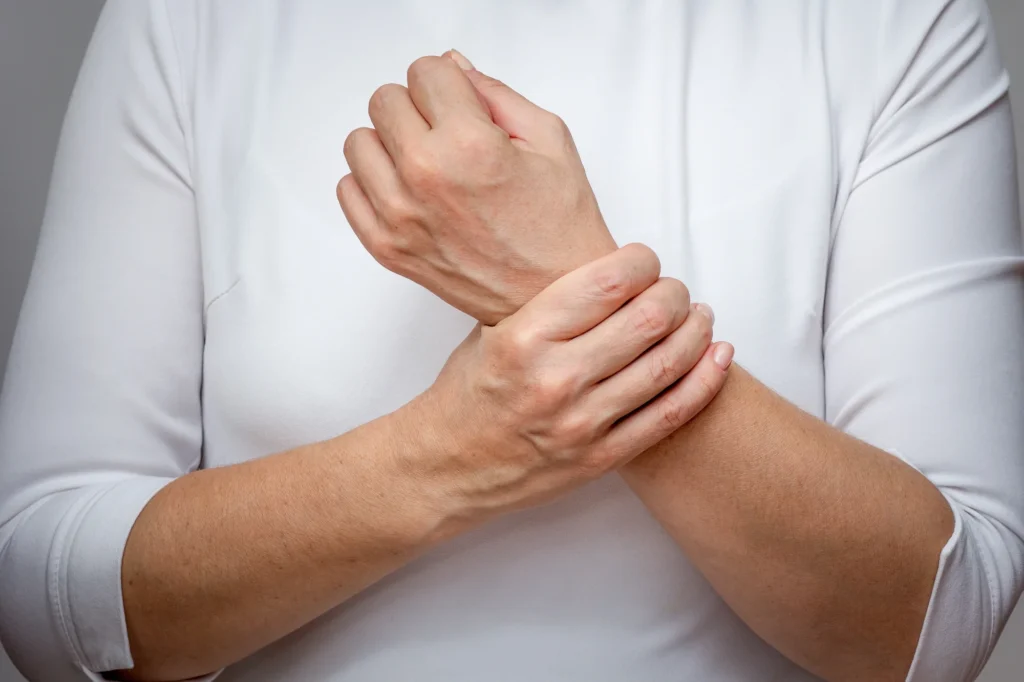Hand Pain

What are hand problems?
The most common hand problems include:
- Carpal tunnel syndrome: compression of the nerve that passes through the wrist, causing frequent numbness of the fingers, tingling and pain
- Injuries: including fractures, torn ligaments, and dislocations
- Osteoarthritis: a degenerative disease that affects joints and cartilage. The cartilage that cushions the joints breaks down, causing bones to rub against each other, pain sets in and this can lead to hand deformity and weakness
- Tendonitis: severe irritation of the tendons that connect muscles in the body to the bones. Symptoms include swelling, inflammation and pain when using the hands
- Injuries and diseases of the fingers: fractures, breaks and specific deformities of the fingers
What are the symptoms of different hand conditions?
Where there is a condition of the hand, the most common symptoms are:
- Pain in different areas of the hand, from the wrist to the fingers
- Tingling or numbness in the hand and fingers
- Swelling that is painful to touch
- Weakness of the hand
- Stiffness of the hand and fingers
- Change in colour or temperature of the hand or fingers
What are the causes of hand problems?
The hands suffer, to a large extent, from wear and tear, which happens earlier in men than in women. Other causes of hand pathologies include:
- Lack of calcium; calcium is essential for strong and healthy bones. A lack of calcium, which can be obtained from dairy sources, broccoli, some leafy green vegetables and beans can lead to weaker bones, increasing the risk of bone-related diseases like osteoporosis.
- Hormonal changes; for example, as menopause approaches. A drop in oestrogen levels during menopause can affect the hydration of the joints and tendons, causing cracking fingers, stiffness and inflammation.
- Injuries
- Bone-related diseases such as osteoporosis and osteoarthritis
- Pregnancy
- Auto-immune diseases